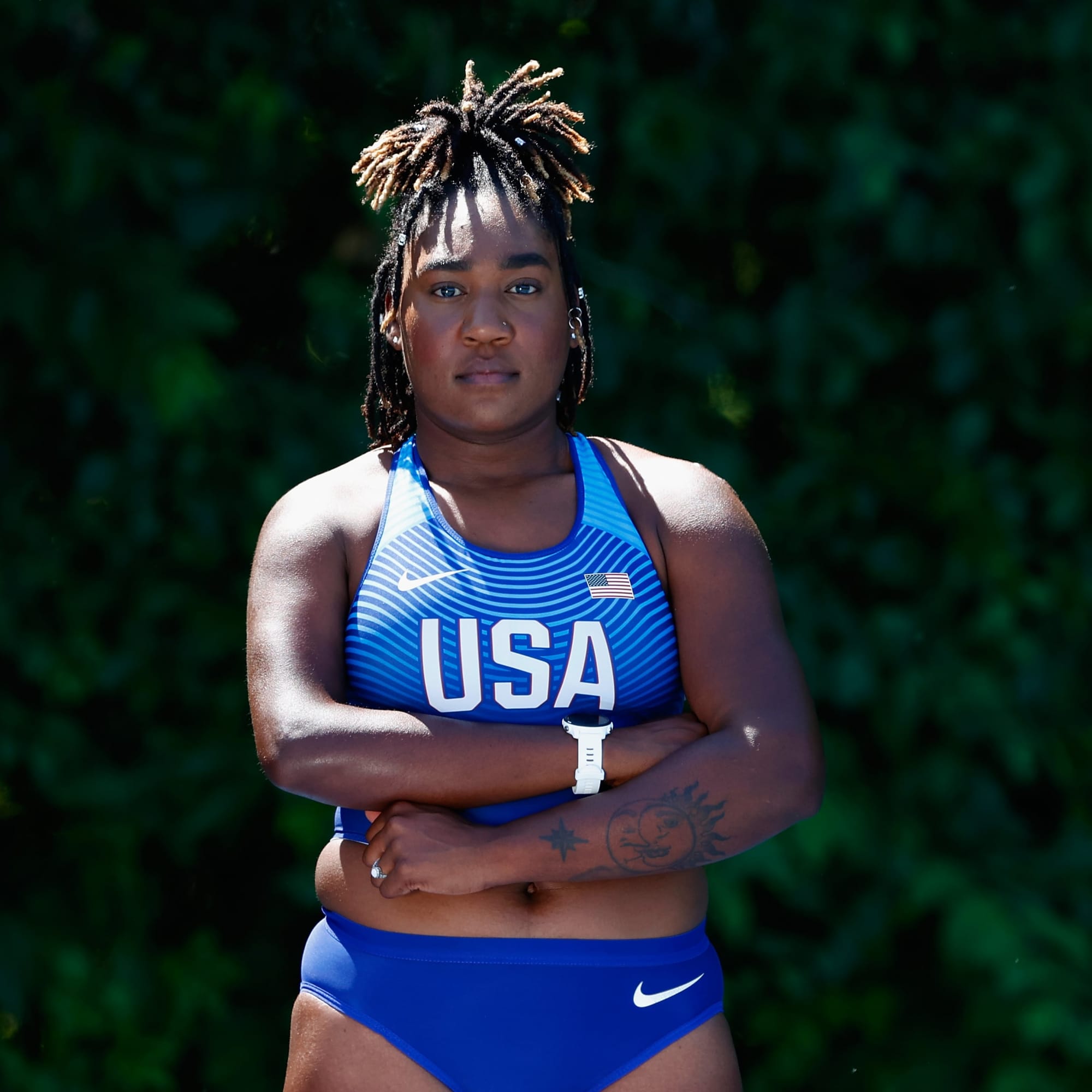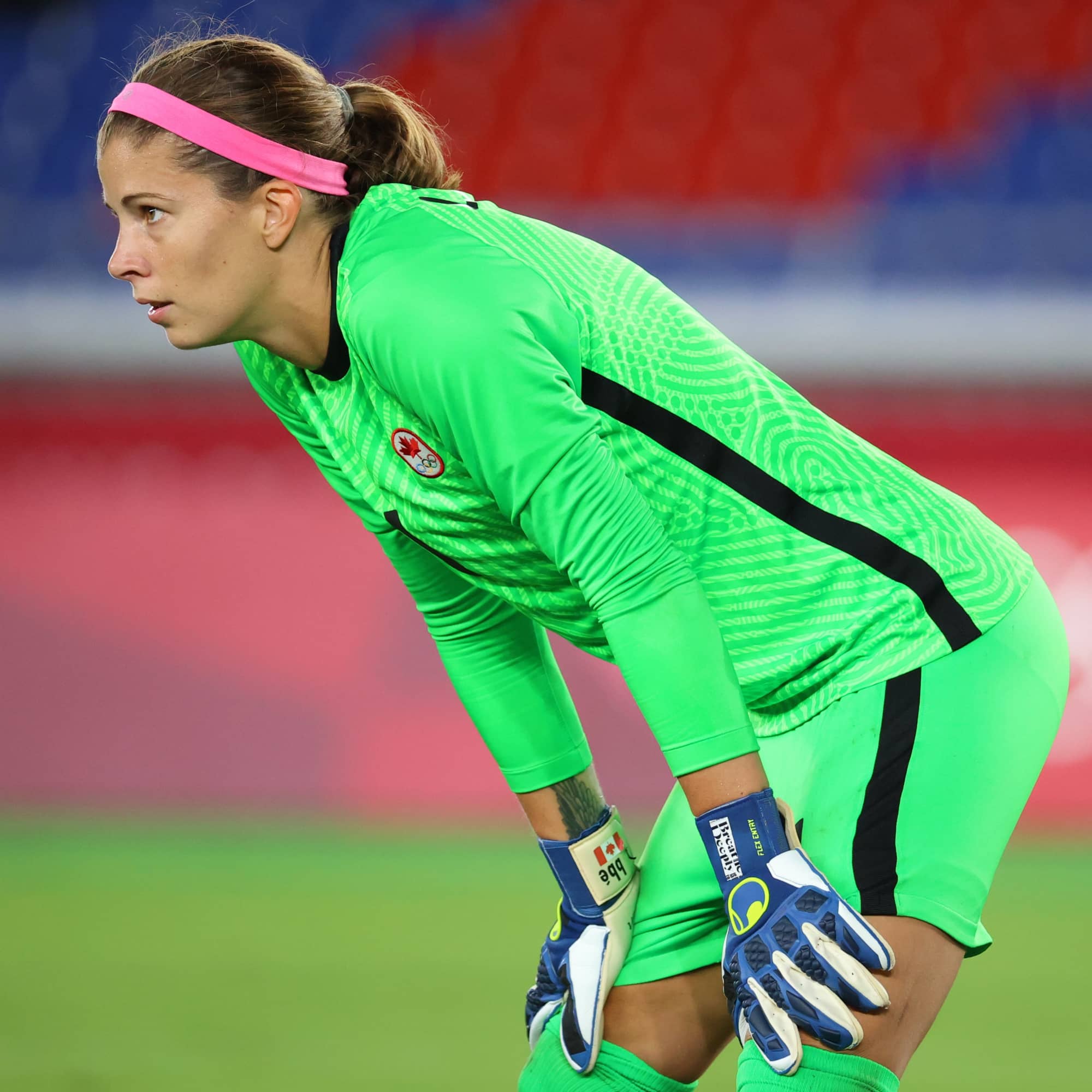
- POPSUGAR Australia
- Fitness
- Paralympian Deja Young-Craddock Says Goodbye to Track For Now: “It’s Time For Me to Walk Away”
Paralympian Deja Young-Craddock Says Goodbye to Track For Now: “It’s Time For Me to Walk Away”

Trigger warning: The following article mentions experiences with suicide and depression.
Deja Young-Craddock is spending time away from track and field after three medals and two Paralympic Games, but there’s only one thing she’s thinking about moving forward: her happiness. It feels similar to a breakup, she told POPSUGAR, because you’re no longer in love and it isn’t as effortless as it used to be. “It was almost like I was in a healthy relationship. I’d give, and then [track] would give right back to me,” she explained. “Then at one point, I was the only one giving. It was not giving back.”
Young-Craddock isn’t quite ready to announce her retirement, so she’s calling this a “break,” and it’s a breather she knew she needed around May of this year. “I went to a track meet in Arizona. Didn’t do so hot, wasn’t feeling so hot. I came home, and it was one of those things where I came to a realization. I was like, ‘Oh my goodness. I don’t want to do this anymore. This is not fun for me anymore,'” the 25-year-old said. “I stayed in bed for a whole week. . . . I couldn’t stop crying, just couldn’t really do anything.”
Young-Craddock said she’s glad to have finished out the 2021 season strong, winning a bronze in the T47 100m sprint at the Tokyo Paralympics after a season she wasn’t thrilled with. “We just came off one of the hardest years of our lives,” she said, “and I was able to still compete on the biggest stage of my career and medal.” Now, it’s time for her to see who she is outside of her sport, and she’s ready to dive right in.
Track was there for her through it all. In 2016, Young-Craddock attempted suicide and was admitted to a mental institution. She said she had to take a certain number of therapy sessions in order to be cleared to compete, and once she was, she raced in the 2016 Paralympic team trials, where she made it to the Rio Paralympics and went on to win two gold medals. Those golds made her feel like returning to the sport following such trauma was worth it, she recalled. Just a few months post Games, she was in an injury-causing car accident that, again, tested her strength. (As she expressed in a recent as-told-to piece for ESPN, “2016 was not my year.”) She overcame that, too.
Young-Craddock took antidepressants for about a year and a half, and she learned that finding the right one can be trial and error. When she was under a 72-hour watch at the mental hospital prior to the 2016 Games, she said she was put on a specific pill that she didn’t like. She vocalized her concerns – fogginess and fatigue especially – so her doctors switched her antidepressants, and she was able to pinpoint one that worked for her. Young-Craddock continued experiencing some side effects such as lack of libido and tiredness, but they “didn’t really impede too much on my mental health,” she said.
Ultimately, going through depression has made Young-Craddock view it as an illness despite being an invisible one at times, and she realized it is by no means linear. She’s honed in on patience, and when she starts to feel like she lacks control over life, she focuses on what she can control. For instance, in January of 2021, she made the decision to leave the US Olympic and Paralympic training site in Chula Vista, CA, and train back home in Texas where she is most happy. “Everything was decided for me: what I ate, what I did. Everything was controlled, and then COVID didn’t help either,” she said, acknowledging that we’re still in the thick of a pandemic.
Young-Craddock also journals, goes for walks, calls her mom, and makes sure to think about how far she’s come. She’s in therapy to this day and sees a sports psychologist as well. One other trick she said she picked up from her experience in the mental hospital five years back is making your bed – it brings a sense of accomplishment.
While she said talking about mental health in sports is in fact beginning to break the stigma, she stressed that steps still need to be taken to normalise mental illness and prioritize the wellbeing of athletes. Young-Craddock said she’d like to see the media “be more understanding” of athletes, for one. She also thinks it’s important for coaches and other staff to undergo training to better handle situations where athletes are struggling mentally. And, mental health professionals, in her opinion, should be accessible at major competitions.
Young-Craddock advises fellow athletes to have a plan B since, at the end of the day, “your results on the field or on the court don’t define who you are.” She continued, “You want to be able to have something that you can fall back on because you never know what happens. You can have a career-ending injury or fall out of love with the sport like I did. It all comes so fast, so have a plan B.” Hers is her social work degree from Wichita State University.
“Right now, I think it’s time for me to let go of your hand and find my own way through this dark time.”
Young-Craddock said this process of releasing what no longer serves her is scary – letting go of a sport that has been a part of her identity for years – but it’s also exciting. She will take this off-season period to reflect, go on daily Target runs, and be a wife to her newly-wedded husband (and be a dog mom!). She’s planning on running “for fun” sans pressure, and she may even start trying to train long distances. “Of course I’m going to run,” she said. “It’s going to be a part of me. It’s always been a part of me, and I don’t think it’s going to go anywhere anytime soon.”
When asked what she would say to competitive track at this point, Young-Craddock answered without hesitation, as if she’d already prepared a farewell message. “I would say, ‘Thank you for giving me and showing me opportunities that I never thought I’d have and letting me touch people in a way that I’ve never thought I could touch people, speaking about my mental health,'” she stated. “‘And thank you for being there for me during some of my darkest times, but now it’s time for me to walk away. Right now, I think it’s time for me to let go of your hand and find my own way through this dark time.'”
If you or anyone you know is struggling and needs support, call Kids Helpline on 1800 55 1800 or Lifeline on 13 11 14, both of which provide trained counsellors you can talk with 24/7. You can also speak with someone confidentially at Headspace by calling 1800 650 890 or chat online here. If you are in immediate danger, call 000.


